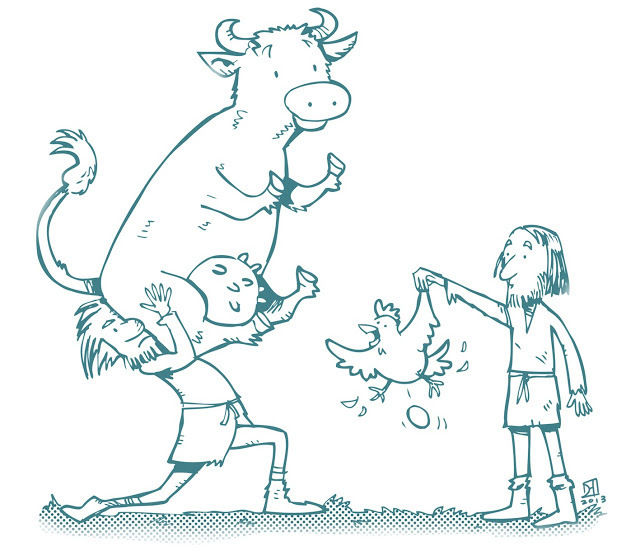Currently, thousands of perfectly good items are shipped off to landfills. What if people, instead of tossing no-longer-needed items, could easily exchange them for ‘new-to-you’ items? Not only would waste be whittled away, there’d be less of a need for the polluting production of new goods. Plus, folks wouldn’t need to worry about wallet woes. If an effective swapping system exists, possessions become liquid.

Image via David Hurtado
Historically, however, swapping has been grossly ineffectual. Here’s a little scenario to help you understand why. In ancient-times you could have a goat you'd want to trade for four blankets. It sounds like a fair trade, but no one in your village wants to trade four blankets for a goat. Or, in technical terms, there’s no coincidence of wants. So, you set out to find someone who’ll agree to your trade. Travel is costly, and when you get to the next city, you find that people there think a goat is only worth one blanket. You go back home. There, someone says they have two spare blankets, but you can’t exactly cut your goat in half to get your fair trade.

Image via Swapdom
For many centuries, money did a good job of circumventing these roadblocks, but the keys for a better solution, that of efficient swapping, are now within reach. The internet has provided a way to connect folks from the far-flung corners of each continent. Paired with the algorithm Swapdom has developed, the need for a coincidence of wants can be erased. Instead of relying on hard-to-arrange 1:1 swaps, Swapdom’s algorithm finds closed loop, group swaps (A gives to B who give to C, etc., until the swap wraps back to A). And since the algorithm runs solely on swappers’ “I’d give this for that” input, everyone always gets what they consider to be a fair trade.
And just like that, boom! Swapping becomes a viable reality, creating a new economy where supply and demand finds purest balance—that created by personalized valuations—and the environment, and everyone living in it, rejoices.


